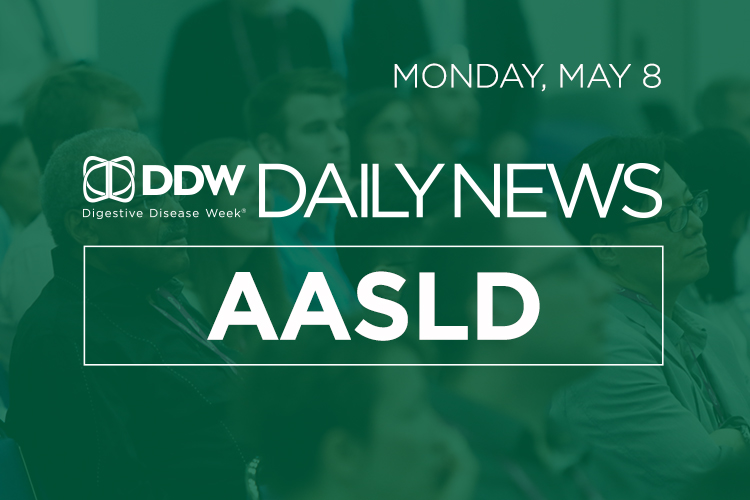The management of hepatocellular cancer (HCC) saw meaningful advances in 2016 with the introduction of two compounds, regorafenib and lenvatinib, for patients with advanced HCC.
During Monday’s AASLD Clinical Symposium Best Practice: Management of HCC in 2017, four experts will discuss how the compounds aid in managing patients with advanced-stage disease. They will also discuss the management of HCC patients with early- and intermediate-stage disease, and review minimally invasive biomarkers for HCC.

Session co-moderator Augusto Villanueva, MD, PhD, assistant professor at the Icahn School of Medicine at Mount Sinai, New York, said that until regorafenib and lenvatinib were approved, no new drug had been approved for HCC since 2007. “It’s been 10 years of essentially nothing but a lot of negative clinical trials,” he said.
Dr. Villanueva will begin the session with an overview of minimally invasive tools to improve diagnostic and prognostic capabilities in HCC.
“I will discuss what we can expect in liquid biopsy, a hot topic in oncology,” he said. “Essentially, the procedure tries to analyze tumor components in the blood, DNA mutations, RNA alterations and isolation of circulating tumor cells, so that we would not need to do biopsy to get the information that we need from the tumor.”
The remaining speakers will discuss HCC management at different disease stages.
Willscott E. Naugler, MD, associate professor at Oregon Health & Science University, Portland, will address the surgical treatment of HCC in its early stages. Some patients in the early stages are candidates for liver transplantation as the main therapy, but the criteria are very strict in terms of tumor burden.
“There’s some evidence that, in some patients, we can expand this criteria and increase the pool of potential receptors for liver transplant in the context of HCC,” Dr. Villanueva said. “There’s a lot of debate, but I think the conversation is there and it will be good to hear from a surgeon about it.”
For intermediate-stage disease, the discussion will focus on the options of locoregional therapy beyond transarterial chemoembolization (TACE). Laura M. Kulik, MD, professor of medicine at Northwestern University’s Feinberg School of Medicine, Chicago, IL, will explore new developments in this area.
“There are a number of studies that show that yttrium-90 [Y90] radioembolization could be an alternative to TACE for some patients, although there is some debate as to the best clinical niche where Y90 could compete with or outperform TACE,” Dr. Villanueva said. “That’s another hot topic in the field right now.”
The final speaker, Josep M. Llovet, MD, PhD, professor of medicine at Icahn School of Medicine at Mount Sinai, New York, will discuss the new systemic therapies for advanced HCC.
Please refer to the DDW Mobile App or the Program section in Monday’s DDW Daily News for the time and location of this and other DDW® events.



